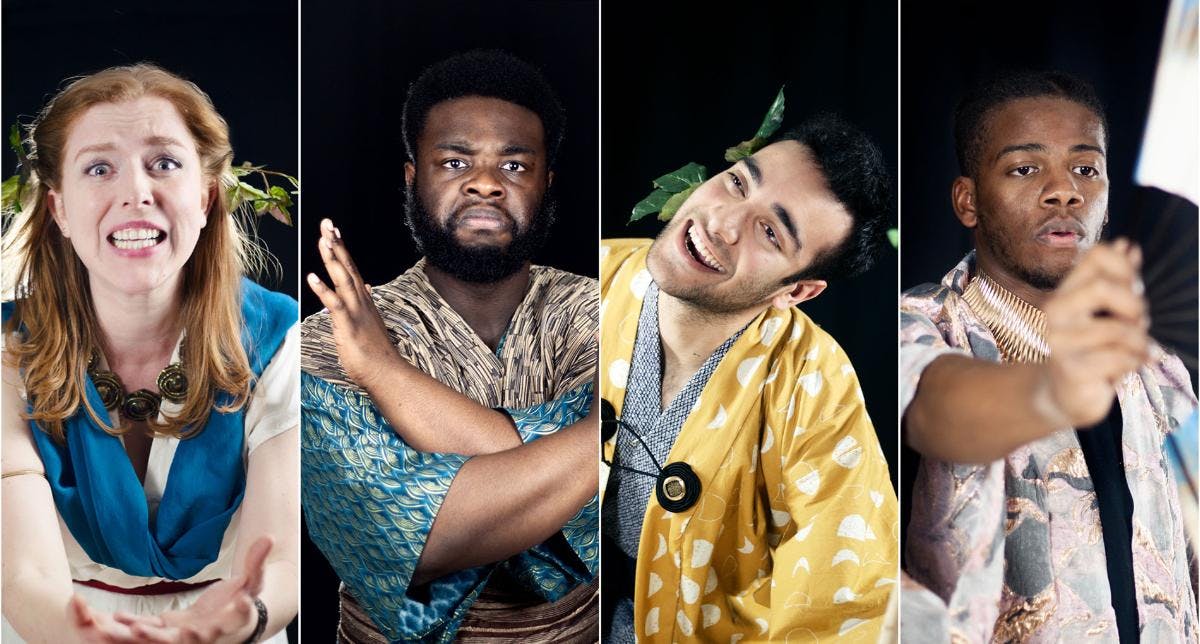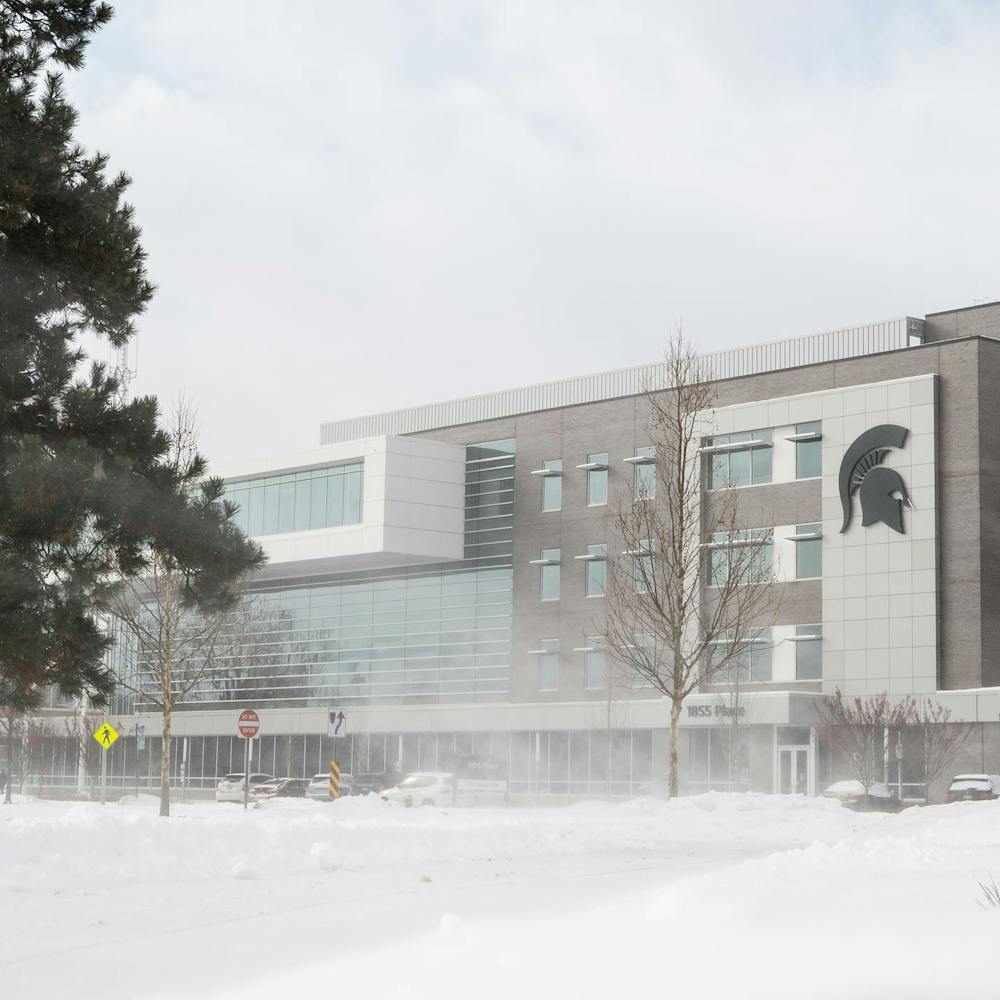With much of the performing arts emphasizing in-person interactions, feedback and connections, Michigan State's transition to predominantly remote learning led these students to doing what they do best — improvising.
When COVID-19 hit home, performing arts students lost out on face-to-face acting classes or key coaching with their instruments. Because in-person contact is such a pinnacle in these students’ education, their daily lives and passions were affected in a unique way.
Fine arts senior Chaseton Cain feels his experience was halved with the switch to remote learning.
“I absolutely do not feel like I got the full experience,” Cain said. “Most of the real education of performing arts comes from the actual act of performing as a playground to perfect techniques we have developed in class so without that aspect we are totally stripped of about half of the experience. Not to diss zoom, but it sucks for anything performative unless it’s comedically bad (which happens too often).”
What’s left of it isn’t nearly as authentic, theatre senior Jay Gooden said. Without being able to have genuine reactions to his performances, Jay has found it difficult to adjust.
“With acting specifically, it works off of reactions of your scene partner, scene partners or the audience,” Gooden said. “With it being online and us going through that, it definitely shifted how we were to think about performing arts as a whole and it definitely was not the best adjustment. A lot of that feedback and real-time reaction was lost, so it was kind of hard to be able to actually portray a character or do a scene authentically because we weren’t authentically there with each other.”
Theatre and acting weren’t the only arts affected. Clarinet education senior Stephen Rhodes has found similar disparities between in-person performance and MSU’s remote efforts as well. Rhodes said he experienced clarinet lessons in a new, comparatively less fulfilling way than what he had on-campus.
“A lot of my classes could be effectively transitioned into online formats and a lot of them were. Clarinet lessons in my opinion is not one such thing,” Rhodes said. “Anything that involves playing your instrument with anyone else had effectively been canceled and switched to a music analysis format. Clarinet lessons have to be clarinet lessons, and there are so many factors that go into a lesson that don’t translate well online.”
Rhodes said he was used to heading to his clarinet professor’s office for lessons and counted on his professor to circle around him as he played, inspecting everything from his face and posture to making sure he had the correct embouchure.
The clarinet player went from being critiqued down to the positioning of his mouthpiece to working from his apartment over Zoom.
“Suddenly I was receiving less of what is arguably the most critical instruction he could give me. But then there’s another issue, the sound quality simply really wasn’t there,” Rhodes said. “Because the transition was last minute and had little to no warning nobody was prepared. My microphone quality was not up to par along with many of my other fellow underclassmen. Because of this, there were probably certain instances where my professor was hearing things that sounded completely different than how I was hearing them simply due to the nature of the online instruction.”
As eager as they are to get the experience-driven education they require, these students understand the weight of the current circumstances of returning to campus.
“Honestly I really didn’t feel safe coming back to campus," Rhodes said. "Especially as a musician. The big thing for me was that the College of Music was still planning on trying to do in-person, large ensembles. Now there are plenty of facilities where we could get our large ensembles into a rehearsal space where we could all properly socially distance and then some, but I didn’t like the idea. With 40 to 50 students heavily breathing and heavily expelling their breath through their instruments and sometimes straight through their mouths, if one student in the ensemble contracted the virus and unknowingly came to rehearsal, it would be game over for quite a few people.”
Cain shared a similar view: It’s better to wait for when the time is right to save lives.
“We definitely should not be put back into in-person classes or performance. The country is in no way ready for reopening and I do not in any way feel safe with the concept of in-person performances,” Cain said. “The way I look at it is that if we continue online work and cease in-person activities then the most we stand to lose is money and convenience, but if we open early because we’re desperate to get back to normal we could lose actual human lives. Personally, I’d rather save the lives.”
So how do these students move forward from here? Though there may be no substitute for office lessons with professors for students like Rhodes, performing arts will have to wait for the authentic, in-person connection.
Just as they had to do in the past, performing arts students are improv-ing and adapting to the new, less than ideal conditions.
"It’s still an ongoing process, I honestly don’t know how things are gonna happen. I’m cast in a production for next semester, and you know, we’re still waiting to see how things are going to happen, how we’re going to do that and I’m definitely just trying to be patient because this is something that everybody is going through," Gooden said. "I’m just kind of waiting it out to see how things are and being patient, but I’m sure whatever that they’ll come up with we’ll be able to adapt to it and adjust to it.”
For now, adapting is all they can do, as they wait to return to the close-knit community and education they have missed.
“I’ve missed the sense of community and friendship that comes from working on a show, as I know everyone else has too,” Cain said. “Quarantine has actually given me an opportunity to do more work on my band though and we released a really great album in lieu of us being able to have live shows. It isn’t the best, but I know everyone is making the best of what they can.”
Support student media!
Please consider donating to The State News and help fund the future of journalism.
This article is part of our Welcome Week print edition. Read the full issue here.
Discussion
Share and discuss “Lights, camera, Zoom: Performing arts students adjust to remote learning” on social media.








